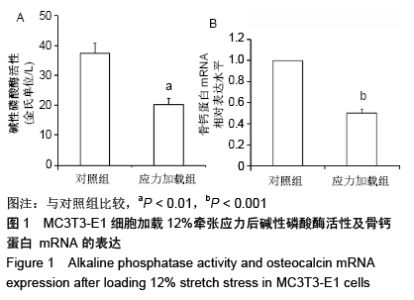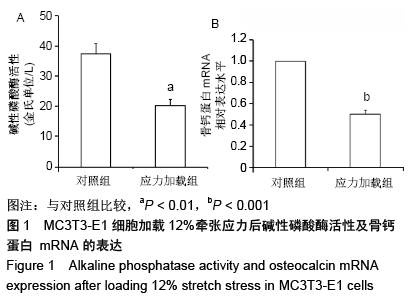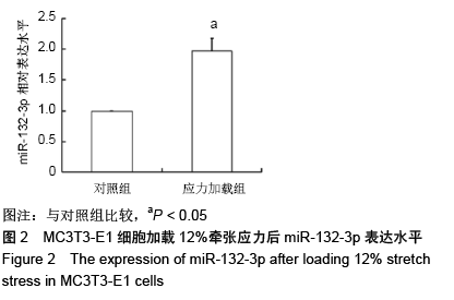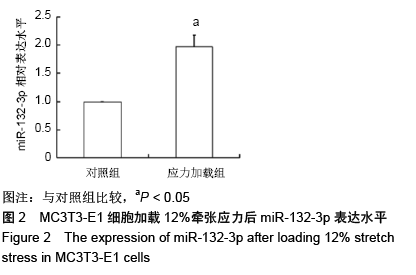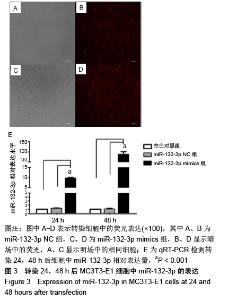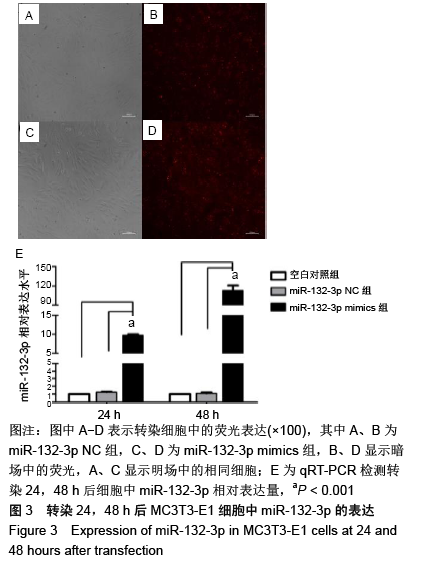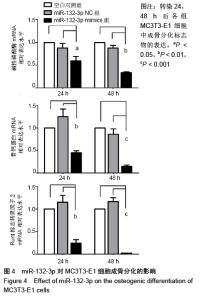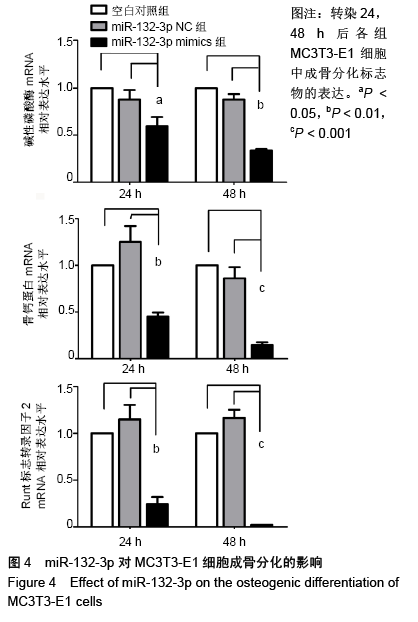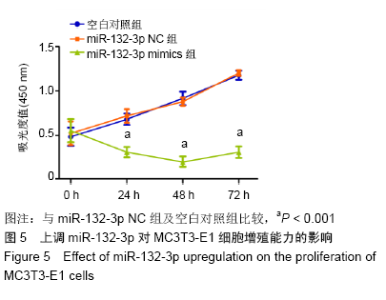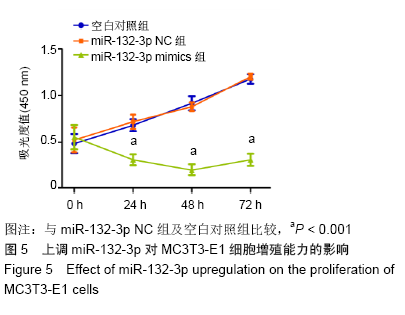[1] GARLET TP, COELHO U, SILVA JS, et al. Cytokine expression pattern in compression and tension sides of the periodontal ligament during orthodontic tooth movement in humans. Eur J Oral Sci. 2007;115(5):355-362.
[2] FELLER L, KHAMMISSA RA, SCHECHTER I, et al. Periodontal Biological Events Associated with Orthodontic Tooth Movement: The Biomechanics of the Cytoskeleton and the Extracellular Matrix. Scientific World Journal. 2015;2015: 894123.
[3] SHEN T, QIU L, CHANG H, et al. Cyclic tension promotes osteogenic differentiation in human periodontal ligament stem cells. Int J Clin Exp Pathol. 2014;7(11):7872-7880.
[4] KOIKE M, SHIMOKAWA H, KANNO Z, et al. Effects of mechanical strain on proliferation and differentiation of bone marrow stromal cell line ST2. J Bone Miner Metab. 2005; 23(3):219-225.
[5] AMBROS V. microRNAs: tiny regulators with great potential. Cell. 2001;107(7):823-826.
[6] DRAGOMIR M, MAFRA ACP, DIAS SMG, et al. Using microRNA Networks to Understand Cancer. Int J Mol Sci. 2018;19(7): E1871.
[7] LI Z, HASSAN MQ, JAFFERJI M, et al. Biological functions of miR-29b contribute to positive regulation of osteoblast differentiation. J Biol Chem. 2009;284(23):15676-15684.
[8] HASSAN MQ, MAEDA Y, TAIPALEENMAKI H, et al. miR-218 directs a Wnt signaling circuit to promote differentiation of osteoblasts and osteomimicry of metastatic cancer cells. J Biol Chem. 2012;287(50):42084-42092.
[9] BHUSHAN R, GRÜNHAGEN J, BECKER J, et al. miR-181a promotes osteoblastic differentiation through repression of TGF-β signaling molecules. Int J Biochem Cell Biol. 2013; 45(3):696-705.
[10] 孙芬,刘铭,刘名燕. 牵引力介导MC3T3-E1细胞microRNA的差异表达[J]. 口腔医学, 2018, 38(3):222-226.
[11] TOGNINI P, PIZZORUSSO T. MicroRNA212/132 family: molecular transducer of neuronal function and plasticity. Int J Biochem Cell Biol. 2012;44(1):6-10.
[12] BICKER S, LACKINGER M, WEIß K, et al. MicroRNA-132, -134, and -138: a microRNA troika rules in neuronal dendrites. Cell Mol Life Sci. 2014;71(20):3987-4005.
[13] QU X, CHEN Z, FAN D, et al. MiR-132-3p Regulates the Osteogenic Differentiation of Thoracic Ligamentum Flavum Cells by Inhibiting Multiple Osteogenesis-Related Genes. Int J Mol Sci. 2016;17(8): E1370.
[14] BIJKERK R, DE BRUIN RG, VAN SOLINGEN C, et al. Silencing of microRNA-132 reduces renal fibrosis by selectively inhibiting myofibroblast proliferation. Kidney Int. 2016;89(6):1268-1280.
[15] 陈熙,郭健民,元宇,等.不同牵张应力对成骨细胞MC3T3-E1分化及Wnt信号转导通路的影响研究[J].中国骨质疏松杂志, 2016, 22(1):9-13.
[16] CHEN Z, ZHANG Y, LIANG C, et al. Mechanosensitive miRNAs and Bone Formation. Int J Mol Sci.2017;18(8): E1684.
[17] LIU L, LIU M, LI R, et al. MicroRNA-503-5p inhibits stretch-induced osteogenic differentiation and bone formation. Cell Biol Int. 2017;41(2):112-123.
[18] CHANG M, LIN H, FU H, et al. MicroRNA-195-5p Regulates osteogenic differentiation of periodontal ligament cells under mechanical loading. J Cell Physiol. 2017;232(12):3762-3774.
[19] GUO Y, WANG Y, LIU Y, et al. MicroRNA-218, microRNA-191*, microRNA-3070a and microRNA-33 are responsive to mechanical strain exerted on osteoblastic cells. Mol Med Rep. 2015;12(2):3033-3038.
[20] ARFAT Y, BASRA MAR, SHAHZAD M, et al. miR-208a-3p suppresses osteoblast differentiation and inhibits bone formation by targeting ACVR1. Mol Ther Nucleic Acids.2018; 11:323-336.
[21] WANG H, SUN Z, WANG Y, et al. miR-33-5p, a novel mechano-sensitive microRNA promotes osteoblast differentiation by targeting Hmga2. Sci Rep. 2016;6:23170.
[22] QI L, ZHANG Y. The microRNA 132 regulates fluid shear stress-induced differentiation in periodontal ligament cells through mTOR signaling pathway. Cell Physiol Biochem. 2014;33(2):433-445.
[23] HU Z, WANG Y, SUN Z, et al. miRNA-132-3p inhibits osteoblast differentiation by targeting Ep300 in simulated microgravity. Sci Rep. 2015;5:18655.
[24] WANG Y, ZOU X, GUO Y, et al. Mechanical Strain Affects Some Microrna Profiles in Pre-Oeteoblasts. Cell Mol Biol Lett. 2015;20(4):586-596.
[25] PICHLER S, GU W, HARTL D, et al. The miRNome of Alzheimer's disease: consistent downregulation of the miR-132/ 212 cluster. Neurobiol Aging. 2017;50:167.e1-167.e10.
[26] LEINDERS M, ÜÇEYLER N, PRITCHARD RA, et al. Increased miR-132-3p expression is associated with chronic neuropathic pain. Exp Neurol. 2016;283(Pt A):276-286.
[27] GUAN H, SHANG G, CUI Y, et al. Long noncoding RNA APTR contributes to osteosarcoma progression through repression of miR-132-3p and upregulation of yes-associated protein 1. J Cell Physiol. 2019;234(6): 8998-9007.
[28] KIM HR, HWANG SJ, SHIN CH, et al. SRSF3-regulated miR-132/212 controls cell migration and invasion by targeting YAP1. Exp Cell Res. 2017;358(2):161-170.
[29] LIU K, LI X, CAO Y, et al. MiR-132 inhibits cell proliferation, invasion and migration of hepatocellular carcinoma by targeting PIK3R3. Int J Oncol. 2015;47(4):1585-1593.
[30] ZHANG M, LI Y, WANG H, et al. LncRNA SNHG5 affects cell proliferation, metastasis and migration of colorectal cancer through regulating miR-132-3p/CREB5. Cancer Biol Ther. 2019;20(4):524-536. |
